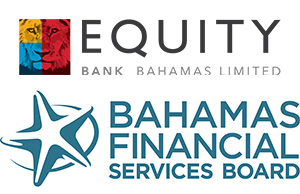Embracing the future: ESG frameworks in the Bahamas

The Bahamas is approaching sustainable finance with a robust environmental, social and governance (ESG) framework. Its location and culture present a unique opportunity for integrating ESG principles that not only protect its environment but also foster inclusive growth and resilient communities.
But what exactly is ESG and why is it so important? Environmental, social and governance are the three critical dimensions that measure the sustainability and societal impact of an investment in a company or business. Environmental criteria consider how a company performs as a steward of nature, focusing on issues like climate change, resource conservation and pollution. Social criteria examine how it manages relationships with employees, suppliers, customers and communities, highlighting labour practices, diversity and community engagement. Governance deals with a company’s leadership, executive pay, audits, internal controls and shareholder rights. By integrating ESG criteria, businesses and investors can identify and mitigate risks, uncover opportunities for growth and contribute to a more equitable and sustainable world. ESG is crucial because it aligns success with ethical responsibility, ensuring long-term value creation at the same time as addressing global challenges.
There has nonetheless been a lot of scrutiny and skepticism around ESG in recent years, with concerns about greenwashing, lack of standardisation and the potential for manipulation in the absence of rigorous governance and accountability frameworks. Critics have argued that it is often hard to quantify and verify the real-world impact of ESG strategies and that the label can be misused to conceal business-as-usual practices.
The Bahamas’ approach addresses those concerns by building a system that is grounded in transparency, integrity and high standards of environmental and social performance.
The Carbon Credits Trading Act and the Climate Change and Carbon Market Initiatives Act enshrine clear and robust provisions for the validation and verification of carbon credits. They establish a rigorous process for registering and authenticating credits to ensure that they represent genuine, additional and permanent emissions reductions or removals.
The legislation also sets out strict criteria for the accreditation of independent third-party validators who will be responsible for assessing the quality and credibility of Bahamian carbon projects and assets. This is critical to building trust and confidence among buyers and investors and to guarding against any risk of greenwashing or manipulation.
These Acts bring legitimacy and an assessment framework to recognise a new asset class (carbon credits) in pursuit of the Paris Agreement’s collaborative goal to reduce emissions. This gives assurance to trusts domiciled in the Bahamas that there is regulatory support for the recognition and valuation of carbon credits.
Trust practitioners will be required to remain nimble and responsive to the diversification of trust asset types, which may include carbon credits going forward. Likewise, for responsible fiduciary oversight of wealth preservation and growth, trustees should consider the efficacy of ESG funds and investment options not only for moral satisfaction but also for monetary prudence, which should be measured by merit.
In 2023, sustainable funds showcased superior performance compared to traditional funds across various asset classes and regions, as revealed by Morgan Stanley Institute for Sustainable Investing’s sustainability report.[fn]https://www.morganstanley.com/ideas/sustainable-investing-on-the-rise[/fn] The data from Morningstar indicates that sustainable funds achieved a median return of 12.6 per cent, surpassing the 8.6 per cent return of traditional funds.
As practitioners looking to attract customers, staying attuned with ESG discussions is in alignment with many wealth creators. When current and prospective grantors of trusts anticipate the fruits of their labour, many may be driven to leave a positive impact on the world in conjunction with ensuring their loved ones are cared for. This can be further deduced by observing the success of the Giving Pledge founded by Bill and Melinda Gates and Warren Buffet in 2010, a collective effort by high-net-worth philanthropists to dedicate the majority of their wealth to charitable endeavors, either during their lifetimes or through their wills. To date, more than 240 individuals from 30 countries have taken this pledge.
Moreover, interest in sustainability among global investors is on the rise, with a Morgan Stanley report revealing that 77 per cent of investors are keen on companies that prioritise ESG factors. Furthermore, a FTAdviser poll indicates that over half of investors are planning to increase their ESG investments in 2024. This trend underscores the growing importance of ESG considerations,[fn]https://www.ftadviser.com/investments/2023/12/01/over-half-of-investors-plan-to-increase-esg-investments-in-2024/#:~:text=In%20a%20poll%20of%20over,financial%20prudence%2C%22%20said%20Green[/fn] with PwC research highlighting that ESG has become a critical factor for leading investors worldwide.[fn]https://www.pwc.com/lt/en/about/press-room/pwc-global-investor-esg-survey.html[/fn]
In essence, the Bahamas ESG framework is anchored in quantifiable, verifiable and governable metrics of environmental and social impact. Its timing is anchored in the relevance of a pervasive conversation about the factors affecting succession planning, the longevity of wealth preservation potentially influenced by climate change and the style in which that is conducted.
Find out more about Equity Bank Bahamas Limited and Liongate Bahamas Limited, part of the Equity Group, and its ESG products
Written by Delphino Gilbert Cassar, Head of Business Development and Fintech at Equity Bank Bahamas and Michael Cleare, Head of Digital Assets & FinTech Operations at Liongate Bahamas
The content displayed here is subject to our disclaimer. Read more


Connect with us